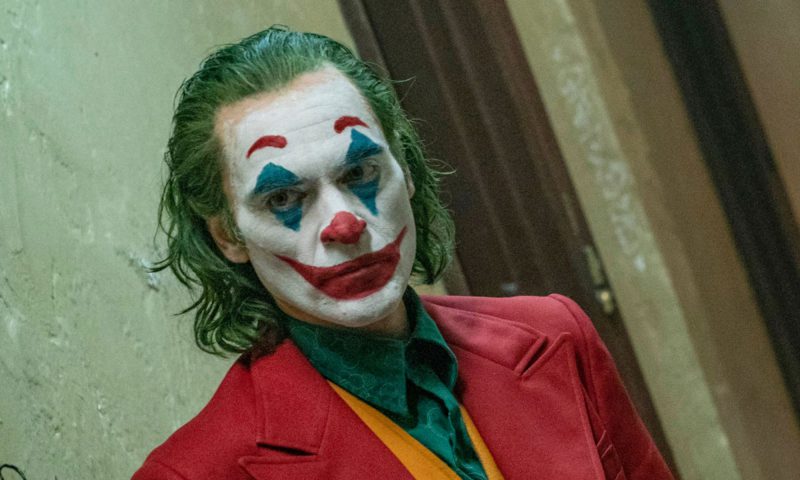With ticket prices and streaming being what they are these days, long gone are the times when I would drop into the theaters just to see something—anything—out of sheer curiosity. Movies have become less of a pleasure trip or reward at the end of a hard work week, and more of a chore. I categorize things into must-sees, the ships I’ll go down with (Oh Star Wars, my Star Wars) and save the curiosity fare for things I know I’m going to more or less enjoy no matter how niche, The Shape of Water being a great example.
Well, the time has come. Joker is the first film in a long time that I’ve experienced legitimate FOMO for. Initially repelled by the trailers and the thought of yet another Sad White Boy Joker rehash as more details about the film spilled out I grew a tinge of optimism. Joaquin Phoenix coming back to his weirdo method acting? Sure. Oh, it’s not really an origin story? Okay. Set in the ‘80s? Alright. Potential black love interest? We might be doin’ something.
And then… the initial press. Early reviews of Joker were mixed. Joaquin Phoenix is as polarizing as ever; Todd Phillips is just very committed to being a victimized white man. Seemingly as a reflection, the film universe doesn’t treat its people of color too well, especially women. If one wishes to see it this way, this at least makes sense because Gotham is and always has been its own level of inner city Hell. It’s probably about time someone pushed harder how terrible it would be for marginalized folks to live in that space. As for the film narrative itself? It’s a Sad White Boy Joker origin story. Damn.
But, loathe as I am to say it, Joker along with Shazam! may be the biggest wins the DC Extended Universe have in their corner.
For fans familiar with the character and the general lore of the Dark Knight, Joker shows its hand pretty often and early. Maybe too often, because by the time mild-mannered, unstable Arthur Fleck finally transitions into his official Mass Murdering Clown get up (with nice homages to Cesar Romero), it comes with little fanfare or explanation, simply that the audience is expecting it. After all, the movie is called Joker, right? So he’s… the Joker! Yeah.
There are a lot of narrative bumps in the movie. It swings for 8 ½ and Taxi Driver but hits somewhere closer to Memento and Natural Born Killers. If you’re going to have a surreal narrative where fantasy and reality intersect, you have to tell the audience what is the fantasy and what is the reality so that by the time they mesh, the mix actually makes sense. Joker prefers sleight-of-hand and aggressive grandstanding, especially when it comes to its mental illness narrative. More on that in a minute.
Where Joker exceeds—where Todd Phillips usually succeeds as a director—is the utterly chaotic and dystopian portrayal of Gotham on the big screen. It’s only been recently that audiences have gotten a chance to see how terrible Gotham is. Sure, the comic book narrative shows its vast empty streets, apartments with giant rats, and spare Riddlers and Killer Crocs running around. Even with Gotham’s reputation as a hub of villainy, film and television portrayals still come off a little sanitized. Even The Dark Knight trilogy didn’t quite scratch the surface of how riddled with terror and fear Gotham is.
But since Batman vs Superman: Dawn of Justice in 2016, we’ve gotten a much better look at how terrifying it must be to live and work on the streets of the nation’s most notorious city. Even under the protective cloak of Batman and the members of the Justice League, Gotham has never seemed to solve all of its problems… and one thing Joker hits on is Gotham’s government being in utter disarray. The only thing scarier than facing off against Starro or Darkseid is this city’s infrastructure.
Ironically, the one thing Joker does best is the one thing it doesn’t push enough. We don’t get much of the city outside of Arthur’s fractured state of mind. The dizzy inertia between what is supposed to be real and what is exaggerated in Arthur’s head is almost too much, which is a perfect example of the realities of living with severe mental illness but the narrative falls frustratingly short to pushing its point in favor of Arthur as the martyr for disaffected, marginalized people. And as cathartic as Joker is to watch, how long are we expected to relate only to White Man’s Pain? We’re introduced to other characters who are in equally dire straits if not worse off, and they’re either killed off or otherwise sacrificed to the plot. There’s something in here, it’s just exhausting to wrench out. One might even get to the end credits and wonder if this had to be a DC feature at all.
But that’s the point, isn’t it? To get people chattering. Two weeks after its debut in the US, I was certainly roped in and left grappling with a sense of catharsis and the “what-the-heck-did-I-just-watch” bewilderment of my young years. It’s nostalgic but hardly worth rioting over. Is Joker a modern work of art? Certainly not. There is nothing enlightening here save a competently made film. Serviceable as a comic book movie and worth it just to see? Absolutely.

